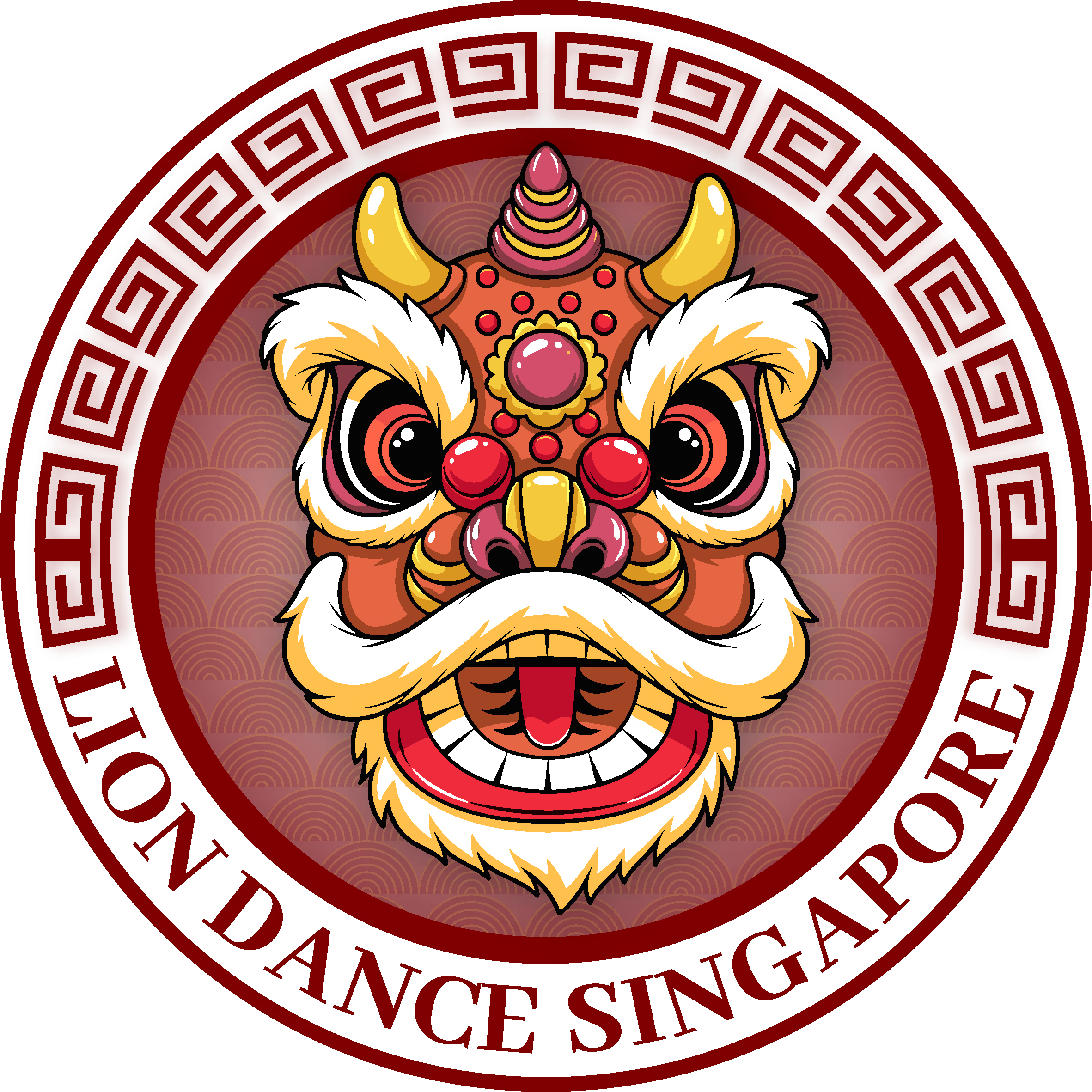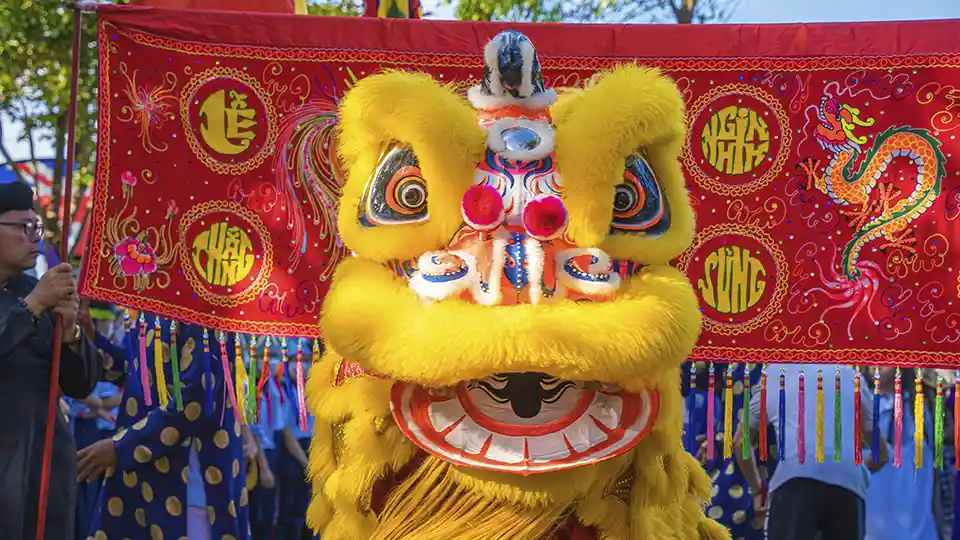
Lion Dance Rules for HDB Residents in Singapore for 2025
The lion dance, a lively and colourful performance featuring a symbolic lion accompanied by rhythmic drumming and cymbals, is a staple of Chinese New Year celebrations in Singapore. This cherished tradition is believed to bring good fortune, prosperity, and happiness while warding off evil spirits. Yet, when it comes to hosting lion dances in Housing and Development Board (HDB) estates, there are certain guidelines and practices residents should be aware of.
In this article, we explore whether lion dances, particularly the "cai qing" ritual, are allowed in HDB estates in 2025, how to organize such a performance, and what regulations apply.
The Current Stance on Lion Dance in HDB Estates
As of 2023, "cai qing" is allowed in HDB estates, and there have been no prohibitions regarding this practice. This ritual involves the lion "plucking the greens," where a symbolic arrangement of lettuce, mandarin oranges, and a red packet (ang bao) is presented to the lion. The act is believed to bring wealth and prosperity to the participants.
HDB estates are considered public housing and serve as the heart of community life for many Singaporeans. Recognising the cultural significance of lion dances, authorities generally permit these performances in HDB estates, provided that certain community and safety guidelines are followed.
Guidelines for Lion Dance Performances in HDB Estates (2025)
While lion dance performances, including "cai qing," are generally allowed, there are a few important considerations to keep in mind:
- Noise Levels:
Lion dances are often accompanied by loud drums, gongs, and cymbals. These sounds may disturb some residents, particularly during non-festive periods or outside the designated hours of Chinese New Year celebrations. Performances should be scheduled at reasonable hours to minimise disruptions. - Permission and Notification:
Although no formal permits are required for performances in most HDB estates, it is courteous and sometimes necessary to notify your town council or Residents' Committee. They can help identify suitable locations and ensure that other residents are informed in advance. - Safe Conduct:
The performance area should be clear of obstacles to prevent accidents. If the troupe uses stilts or other acrobatic equipment, they must ensure the space is safe for their performance. - Respect for Shared Spaces:
Lion dances often take place in common areas such as void decks, open fields, or car parks. These spaces should be left clean and undamaged after the performance.

Steps to Host a Lion Dance Performance at Your HDB Estate
If you're planning to host a lion dance to welcome good luck and prosperity, follow these steps for a smooth and enjoyable experience:
1. Check with Local Authorities
Reach out to your town council or Residents' Committee to confirm if any special permissions are required. While "cai qing" is allowed, certain estates may have their own rules or schedules for communal events.
2. Choose the Right Troupe
Engage a licensed and experienced lion dance troupe. Many professional troupes are familiar with HDB-specific protocols and can tailor their performance to suit the space and audience.
3. Prepare Traditional Offerings
For a "cai qing" ritual, you'll need:
- Lettuce: Symbolising wealth and prosperity ("sheng cai" sounds like "grow wealth" in Chinese).
- Mandarin Oranges: Representing good fortune.
- Ang Bao (Red Packet): A monetary gift for the troupe, symbolising appreciation and prosperity.
4. Coordinate with Neighbors
Give your neighbours a heads-up about the upcoming performance. Most residents appreciate being informed, especially since the loud drumming might catch them off guard.
5. Pick a Suitable Timing
Early morning or late afternoon is generally the best time for lion dance performances, as it avoids peak noise-sensitive periods.

Cost of Lion Dance Performances
The price of a lion dance performance varies depending on the troupe, the number of lions, and the duration of the event. Here is an approximate cost breakdown:

Note: Peak periods, such as the first two days of Chinese New Year, may incur higher fees.
Celebrating the Lion Dance Tradition in HDB Estates
Hosting a lion dance in an HDB estate is a wonderful way to embrace Chinese culture and foster a sense of community. Beyond its cultural significance, it provides an opportunity for residents of all backgrounds to come together in celebration. The festive atmosphere of a lion dance performance, combined with its symbolic meaning, brings joy and positivity to the neighbourhood.
Some Frequently Asked Questions
1. Is "cai qing" allowed in HDB estates in 2025?
Yes, as of 2023, "cai qing" is permitted in HDB estates. There are no restrictions, but it’s best to check with your local Residents' Committee for any specific guidelines.
2. Do I need a permit for a lion dance performance in my HDB estate?
No official permit is required. However, informing the town council or Residents' Committee is recommended for smooth coordination.
3. Can lion dances take place in HDB common areas like void decks?
Yes, common areas such as void decks or car parks are popular locations for lion dance performances. Just ensure the space is cleaned up afterward.
4. What should I prepare for a "cai qing" ritual?
Prepare lettuce, mandarin oranges, a pineapple (optional), and a red packet (ang bao). These offerings are symbolic gestures for wealth and good fortune.
5. Are there noise restrictions for lion dance performances?
Performances are typically allowed during reasonable hours, especially during the Chinese New Year period. Avoid scheduling them late at night or early in the morning.
6. How can I find a reliable lion dance troupe?
Search online or ask for recommendations from friends. Look for licensed and experienced troupes that specialise in community performances.
In Conclusion
Lion dances remain an integral part of Singapore's cultural tapestry, bringing vibrant energy and symbolic blessings to households and communities alike. As of 2025, hosting a lion dance performance, including the "cai qing" ritual, is allowed in HDB estates, provided residents follow community guidelines and respect shared spaces.
Embracing this tradition not only enriches cultural celebrations but also strengthens the bond among neighbours, spreading festive cheer across HDB estates.
So, why not bring the lion to your doorstep this Chinese New Year? It’s a sure way to kickstart the year with joy, unity, and prosperity!

.png)
.png)



